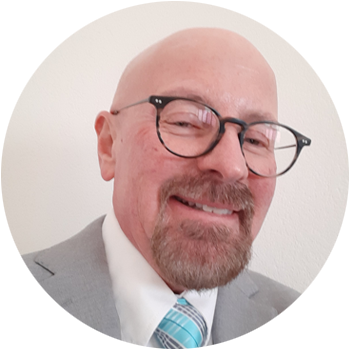Aging and Long-Term Care
Presented by: Maximilian Fuentes Fuhrmann, PhD, ABPP
This on-demand professional training program  on Aging and Long-Term Care is presented by Maximilian Fuentes Fuhrmann, PhD, ABPP.
on Aging and Long-Term Care is presented by Maximilian Fuentes Fuhrmann, PhD, ABPP.
In this program, myths and stereotypes of aging are explored, which may influence your ability to effectively assess and treat older adults, and their children and grandchildren who may be struggling to assist them with a myriad of physical, psychological, and social needs. To facilitate interactivity there are four case studies reviewed and discussed.
This program reviews distinguishing “normal” aging changes in intellectual, cognitive, and memory functioning from those which are a consequence of disease; introduction to the biopsychosocial model of assessment and psychotherapeutic treatment of older adults; and issues involved when working with the elderly and their families when they confront long-term care. You also have a chance to challenge assumptions about your own aging and potentially look at issues that may impact how you plan for your life as a senior.
This program is intended for professionals at any career stage, including, licensed psychotherapists working in clinical settings, including medical, behavioral, or long-term care environments.
The 6-hour program is structured to meet the California psychologist pre-licensure coursework requirement for training in Aging and Long-Term Care for Psychologists as required by the California Board of Psychology.
Upon completion of this training, participants will be able to:
Key topics covered in this training include:
The biopsychosocial model of assessment of the elderly.
Common mental health diagnostic and treatment issues.
Countertransference issues, which may negatively affect your work.
Psychotherapeutic treatment approaches and factors that are believed to contribute to longevity.
How to age well.
How to motivate elderly clients to change behavior.
Psychometric assessment of neurocognitive disorders, depression, and anxiety.
Palo Alto University, Continuing & Professional Studies (CONCEPT) is approved by, recognized by, or maintains sponsorship provider status with the following boards and agencies. We maintain responsibility for all content in our CE/CPD programs. For more information, visit here.
American Psychological Association (APA): Approved sponsor of continuing education for psychologists.
Association of Social Work Boards (ASWB): Approved continuing education provider (ACE program, Provider #1480), 11/22/2023–11/22/2026.
Canadian Psychological Association (CPA): Approved to sponsor continuing education for psychologists.
National Board for Certified Counselors (NBCC): Approved Continuing Education Provider (ACEP No. 7190).
Palo Alto University, Continuing and Professional Studies (CONCEPT) is approved by the American Psychological Association to sponsor continuing education for psychologists. Palo Alto University, Continuing and Professional Studies (CONCEPT) maintains responsibility for this program and its content. Palo Alto University, Continuing and Professional Studies (CONCEPT), is approved by the Canadian Psychological Association to offer continuing education for psychologists. Palo Alto University, Continuing and Professional Studies (CONCEPT), SW CPE is recognized by the New York State Education Department’s State Board for Social Work as an approved provider of continuing education for licensed social workers #SW-0356 and the New York State Education Department’s State Board for Mental Health Practitioners as an approved provider of continuing education for licensed mental health counselors. #MHC-0073. Palo Alto University, Continuing and Professional Studies (CONCEPT) has been approved by NBCC as an Approved Continuing Education Provider, ACEP No. 6811. Programs that do not qualify for NBCC credit are clearly identified. CONCEPT Professional Training, #1480, is approved to offer social work continuing education by the Association of Social Work Boards (ASWB) Approved Continuing Education (ACE) program. Organizations, not individual courses, are approved as ACE providers. State and provincial regulatory boards have the final authority to determine whether an individual course may be accepted for continuing education credit. CONCEPT Professional Training maintains responsibility for this course. ACE provider approval period: 11/22/23-11/22/26. Social workers completing this course receive (clinical or social work ethics) continuing education credits.